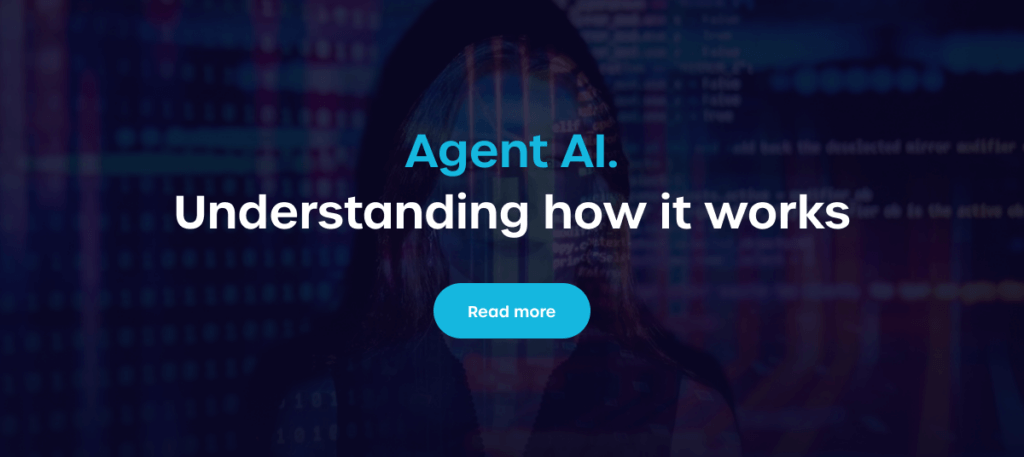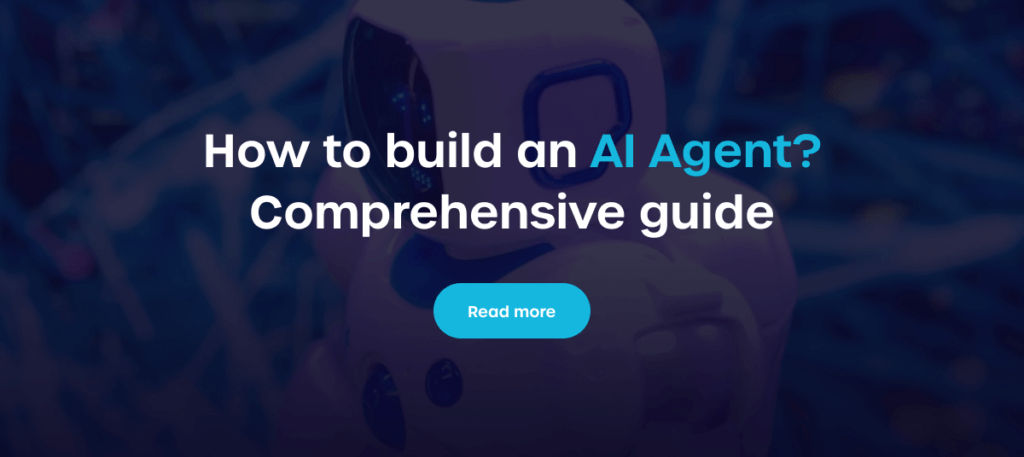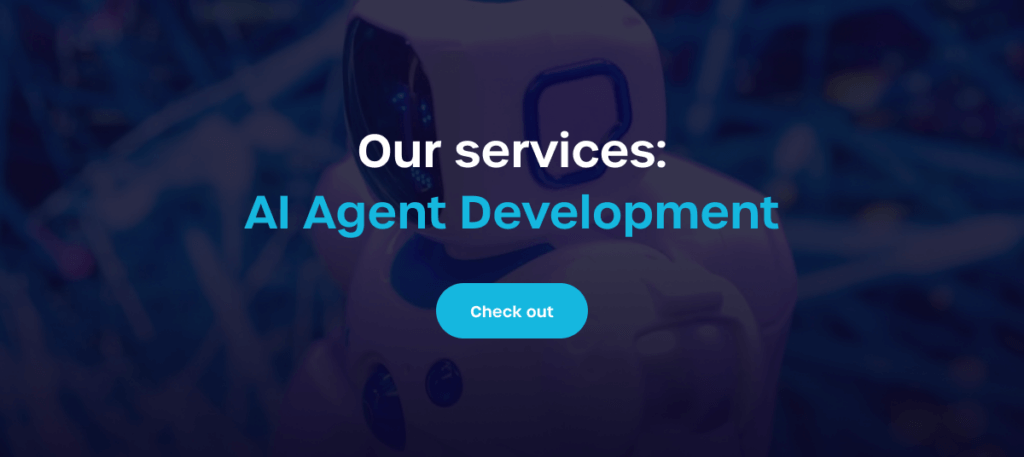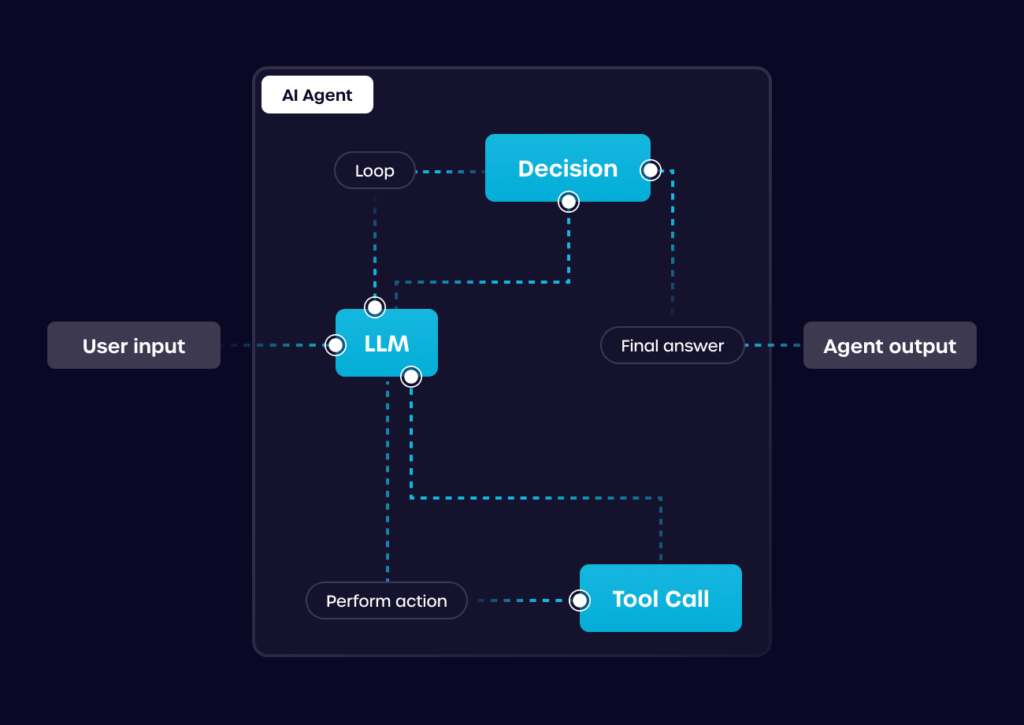Artificial Intelligence agents and chatbots are often used interchangeably, but they serve distinct purposes in the world of automation and artificial intelligence. Understanding the key differences between an AI agent vs chatbot is crucial for businesses looking to implement the right solution for their workflows.
In this article, we’ll explore how agents and chatbots function, their unique capabilities, and which one is best suited for different applications. Whether you’re enhancing customer support or streamlining operations, choosing the right AI-powered tool can significantly impact efficiency and user experience.
Understanding AI agents and chatbots
Before we dive into a deeper comparison between the two, let’s define what a chatbot and an AI agent actually are. You have probably encountered both of these systems before in everyday life.
What is a chatbot?
Chatbots are basic software applications designed to simulate conversation with users, typically functioning within specific frameworks to provide predefined responses. Many chatbots utilize natural language processing (NLP) to interpret user input, but their capabilities are sometimes limited to recognizing keywords and following scripted dialogues.
Their functionality is restricted, which limits the type of interactions they can handle. While they improve efficiency in handling repetitive queries, they lack the ability to adapt or learn from interactions, making them less effective for complex problem-solving and dynamic conversations.
However, advanced chatbots, such as ChatGPT, go beyond these limitations by leveraging deep learning and large language models. They can process context more effectively, generate nuanced responses, and engage in more fluid, human-like conversations, making them useful for a wider range of applications.
AI agent explained
An agent AI, on the other hand, is a more advanced digital entity capable of understanding, learning, and performing tasks autonomously. Unlike a mere chatbot, an artificial intelligence agent can analyze data, draw conclusions, and adapt its behavior based on interactions over time. The AI agent for business can significantly improve decision-making and operational efficiency.

Comparison: AI agent vs chatbot
AI agents and chatbots both enhance user interactions, but their impact on business operations varies significantly. While chatbots streamline basic communication, agents integrate deeper into workflows, enabling automation, data-driven insights, and intelligent decision-making.
Capabilities of chatbots and AI agents
When comparing capabilities, the difference between chatbots and AI agents becomes evident. The first ones are limited to scripted responses, while the other ones leverage complex algorithms to perform a wider range of tasks. An AI agent can engage in nuanced interaction and execute specific business processes that chatbots cannot. Here is the short comparison:
- Chatbots are straightforward and suitable for simple tasks.
- AI agents solve complex problems and optimize workflows.
- The versatility of AI agents makes them suitable for various industries.
Flexibility in learning and adaptation
Flexibility is another critical distinction in the AI agent vs chatbot debate. AI agents utilize machine learning processes that enable them to adapt over time, learning from experiences and user interactions. This continuous learning allows AI agents to refine their responses, predict user needs, and provide increasingly accurate assistance.
In contrast, standard chatbots typically fail to learn from past interactions, resulting in repetitive and less engaging conversations for users. Since chatbots operate based on predefined rules, they struggle to handle unexpected queries, often requiring human intervention to resolve complex issues. On the other hand, advanced AI-powered chatbots like ChatGPT or Gemini can analyze context, adapt their responses dynamically, and generate more coherent, insightful conversations without relying strictly on predefined scripts.
Scalability for simple and complex tasks
When examining scalability, it becomes clear that AI agents have an advantage over chatbots. While chatbots can effectively manage simple inquiries, they may struggle to handle high-volume interactions or complex requests.
AI agents, however, are built for scalability, enabling businesses to automate intricate workflows and manage large-scale operations efficiently. Organizations that implement AI agents can optimize project management, improve responsiveness, and enhance overall productivity.
From conversations to autonomous actions - AI agent vs chatbot
It's essential to understand how AI agents and chatbots differ in their roles, evolving from simple conversation to autonomous actions. AI agents go beyond dialogue, participating in decision-making and executing tasks without human intervention. This shift highlights the significant capabilities of AI agents compared to traditional chatbots, making them valuable for businesses looking to streamline operations.
Companies that build AI agent can leverage automation to improve efficiency, reduce manual workload, and enhance customer interactions. As AI technology progresses, both systems become more and more advanced and sometimes even complement each other.

AI agent vs chatbot - practical applications
Now that we have all this information about definitions and differences, let's look at the practical applications and real world examples of AI agents and chatbots.
Chatbots in everyday use
Chatbots are widely used in customer service applications and in e-commerce, delivering immediate responses to inquiries while enabling businesses to streamline their operations. They have found their place in websites, social media, and messaging apps, providing a basic yet effective form of communication. Some of the most well-known AI chatbots demonstrate how these systems assist users in various ways.
- ChatGPT provides conversational AI support, helping users with content generation, answering questions, and coding assistance.
- Google's Gemini offers AI-powered assistance, integrating with Google services to enhance productivity and answer complex queries.
- Anthropic's Claude focuses on safe and responsible AI interactions, assisting with research, summarization, and thoughtful discussions.


AI Agents and their impact on automation
AI Agent development is revolutionizing the landscape of business automation. With the ability to analyze large datasets and make decisions in real time, these artificial intelligence agents are driving efficiency like never before. They are employed across industries to automate various tasks, reducing human error and freeing up valuable time. Some of the most well-known AI agents demonstrate how advanced systems go beyond simple interactions to execute complex operations.
- Amazon’s Alexa processes voice commands, automating tasks like smart home control and information retrieval.
- Apple’s Siri acts as a virtual assistant, helping users with scheduling, navigation, and voice-activated queries.
- Tesla Autopilot leverages AI to assist with autonomous driving, improving vehicle safety and navigation.
- DeepMind’s AlphaGo showcases AI’s potential in gaming, mastering complex strategies and defeating world champions in Go.

How AI agents incorporate chatbot functionalities?
AI agents often incorporate chatbot functionalities to provide seamless communication alongside intelligent operations. Combining chat functionalities with deeper analytical capabilities enables these systems to deliver a more comprehensive service experience. This base-level dialogue allows users to interact before diving into more complex tasks.
By integrating natural language processing and real-time data analysis, AI agents can offer both conversational support and actionable insights, enhancing user engagement and efficiency.

FAQ - AI agent vs chatbot
Can a chatbot become an AI agent?
While a chatbot cannot inherently transform into an AI agent, it can be upgraded with additional capabilities. This development often involves incorporating machine learning and more complex algorithms, which enable the system to learn and adapt like an AI agent does.
What are the main industries using AI agents?
Several industries are leveraging AI agent for business, including finance, healthcare, e-commerce, and customer service. Each sector benefits from the efficiencies provided by these artificial intelligence systems, realizing improvements in decision-making, cost reduction, and operational excellence.
AI agents vs chatbot - what's their impact on business automation?
Chatbots streamline communication and answer basic inquiries, whereas AI agents drive automation further by executing tasks and responding dynamically to data. Businesses focusing on AI agent implementation can significantly enhance their automation strategies.
What are the biggest challenges in developing AI agents?
Developing effective AI agents presents unique challenges, including data privacy concerns, ensuring ethical AI practices, and creating systems that can interpret and learn from diverse datasets. Balancing these obstacles while maximizing the effectiveness of AI agents compared to chatbots remains an ongoing pursuit in AI development.






